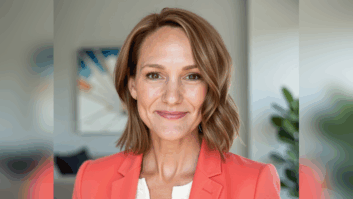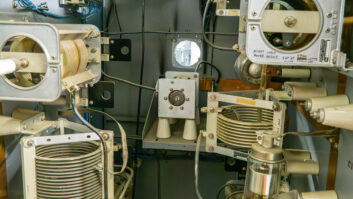The folks responsible for marketing HD Radio have been placing ads beyond radio in certain other advertising media. It’s about time.
The digital technology has been in need of a wider marketing press; ideally that would mean TV ads, billboards, social network sponsorships, you name it — not just spots running on radio stations, as nice as they are.
The HD Digital Radio Alliance is wise to expand its use of newspaper inserts, mobile texting, online ads and giveaways, as it said it would do in its Dec. 2 announcement of a holiday marketing campaign. We need more, lots more. (Hey, HD Radio does have a Facebook page, albeit with only 154 members.)
To limit marketing essentially to running radio spots, as was the case in the past, sends a message: “We think this thing is cool, but not cool enough to spend money to proselytize about it outside of our own channels, where air time costs us little to nothing.” So the broader push is overdue.
Receivers are in fact becoming more affordable and more widely available. That’s good news and critical to kick this rollout into the higher gear its proponents dream of.
But each of our own visits to retail outlets, as reported in RW, have found that few electronics store salespeople or managers appear to share the enthusiasm for HD Radio apparent in the alliance’s latest marketing announcements.
HD Radio I think is at an important plateau. Broadcast equipment manufacturers tell me their hardware orders have dropped off. The data on our HD Radio Scoreboard reinforce the sense that the technology has penetrated many of the largest groups but that small and medium-sized groups continue to view it with caution.
In itself this is not surprising. The 87 percent of U.S. radio stations that are not yet on the air in HD Radio apparently have decided to wait to see a value proposition proven. So now is time for its heralds to do that. While proselytizers do more to educate listeners and the retail chain — and while they push and nag to get the number of deployed receivers up to the first million units — it’s imperative that radio stations already airing HD Radio do a better job of investing in content on the multicast channels to attract excitement and loyal listeners, even as they explore profitable data applications in the background.
Again we face the dilemma: Do the owners and programmers of modern-day radio entities know how to create content that will appeal in a compelling way to a modern media consumer, particularly someone born after, say, 1980?
Many industry critics think the answer is no and can cite plenty of evidence (time spent listening, radio stock prices, radio’s anecdotal reputation). Nothing will answer those critics better than to create remarkable and profitable content on multicast outlets. But broadcasters must not wait until receivers penetrate the market to start thinking about this; that’s to ask an egg to lay a chicken.
Meantime I do hope radio has the stamina to continue its build-out of the national digital infrastructure, even in the increasingly strong economic headwinds, and that it can resolve its issues over digital power level and interference.
But nothing will drive demand for receivers better than compelling content, and nothing will cause the industry in general to create compelling content like realizing that a competitor (hopefully you) has leapt out to an exciting position with a new and innovative channel.
I believe that soon we will be reading national news accounts of certain hot multicast stations and how they are attracting specialized, loyal (young?) audiences. That will be exciting. It would be a shame if that benefit accrued only to the 13 percent of U.S. radio stations that have adopted HD Radio so far, or if those stations that did invest in the technology let these new channels go underused.
Radio World will profile more HD Radio broadcasters in coming months, asking managers about their strategies for both audio and data applications and how they view the challenges facing the technology.
* * *
Here’s an idea for iBiquity and the HD Digital Radio Alliance, from someone dear to Radio World.
Why not start a new venture and go public? Buy or lease the Eckington Place headquarters of XM Radio in Washington, and launch the “HD2 Incubator & Content Vault.” This could serve as the national center for program syndication.
Consider that facility, sitting there under one roof, full of studios and gear (and fine programming talent, either current and laid off) and presumably something of a drag right now on Mel Karmazin’s wallet. What a treasure begging to be discovered. Who would want all of that radio creation infrastructure?
Hmm. Maybe some young passionate entrepreneurs could start a new publicly traded company. Maybe Washington would even provide grants to help get it jump-started.
* * *
We’ve heard a great deal of talk about the Fairness Doctrine this fall. Conservative commenters in particular worry that Barack Obama and/or his Democratic allies will push for a return to the days when “fairness” in on-air programming was mandated through requiring time for opposing viewpoints.
Much of what I hear tuning around the talk radio dial strikes me as distasteful; but a return to the Fairness Doctrine would not be welcome to me.
Yes it’s appropriate to discuss what constitutes responsible policy concerning content on the public airwaves. But in the long term, our society is healthiest when we promulgate more channels and proliferating points of view, not restrict those we have. What did Voltaire say? I disagree strongly with what you say, but I will defend to the death your right to say it.
However I also predict that nothing will come of this. I detected no credible push for a new Fairness Doctrine prior to the election; it was online yabber itself that drove this discussion in the first place, with pre-election bloggers predicting that Obama would definitely push for a new Fairness Doctrine when in fact he is on record saying he didn’t favor such a change. My read is that the incoming president is too pragmatic to push for such a thing despite the liberal extremist label some slapped on his back earlier.
Certainly, some liberal Dems would like to see such a policy return. But I do not think they are numerous or that they will find political headway on this issue.
Radio will face plenty of interesting regulatory concerns in the coming year, but worries over a renewed push for Fairness Doctrine, I think, will turn out to have been just a puff of political hot air.
The author is Editor in Chief of Radio World U.S.







